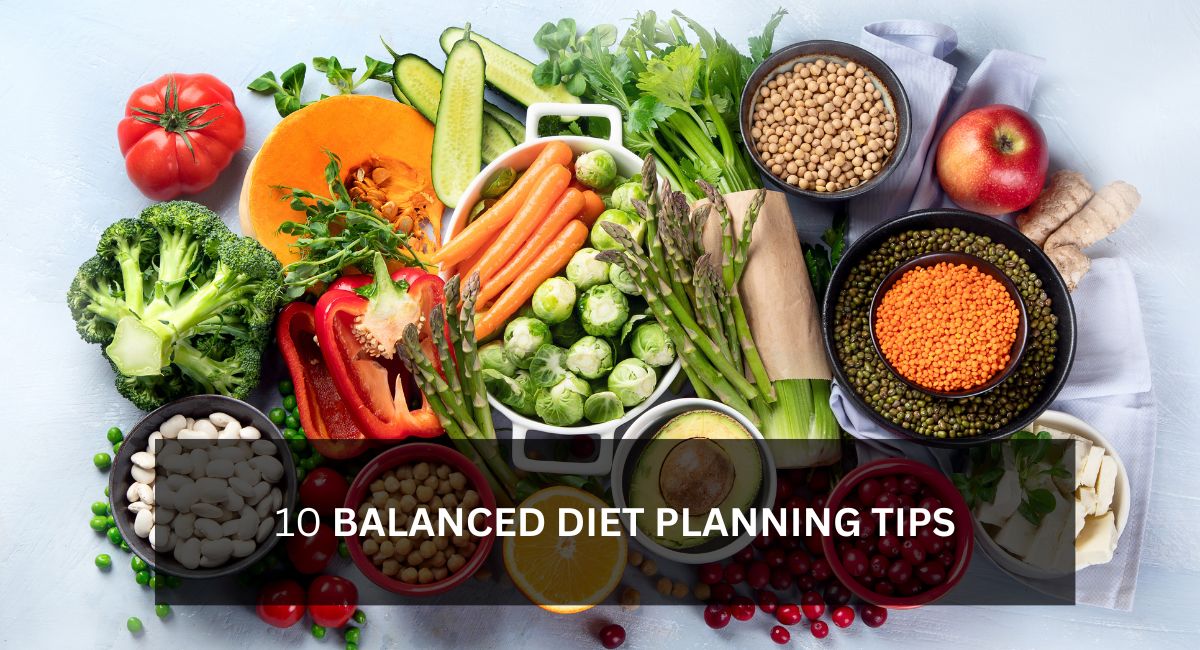A balanced diet is key to maintaining good health, high energy levels, and overall well-being. However, with the abundance of dietary advice and trends, planning a balanced diet can seem overwhelming. Here are ten practical tips to help you create a well-rounded and nutritious diet plan.
1. Understand the Basics of a Balanced Diet
Before diving into diet planning, familiarize yourself with the basics. A balanced diet includes a variety of foods from all the major food groups: fruits, vegetables, grains, protein sources, and dairy. It’s all about getting the right nutrients in the right proportions.
2. Eat a Variety of Foods
Variety is not just the spice of life; it’s the core of a balanced diet. Eating a wide range of foods ensures you get all the necessary nutrients. Each food group offers different vital nutrients, so include many different fruits, vegetables, grains, and protein sources in your diet.
3. Control Portion Sizes
Understanding portion sizes is crucial. Even healthy foods can lead to weight gain if eaten in large amounts. Use measuring cups or a kitchen scale to familiarize yourself with recommended serving sizes.
4. Focus on Whole, Unprocessed Foods
Whole, unprocessed foods are the cornerstones of a balanced diet. They are less likely to contain added sugars, fats, and sodium. Incorporate whole grains, fresh fruits and vegetables, lean proteins, and natural dairy products into your diet.
5. Limit Added Sugars and Sodium
Excessive consumption of added sugars and sodium can lead to various health issues. Avoid foods high in these components, such as sugary drinks, snacks, and processed foods.
6. Include Healthy Fats
Not all fats are bad. Healthy fats are essential for heart health and overall well-being. Include sources of unsaturated fats, like avocados, nuts, seeds, and olive oil, while limiting saturated and trans fats.
7. Stay Hydrated
Hydration is a critical but often overlooked aspect of a balanced diet. Drinking enough water each day is vital for digestion, nutrient absorption, and overall health. Aim for at least 8 glasses of water daily, more if you are active or live in a hot climate.
8. Plan Your Meals and Snacks
Meal planning is a great way to ensure you stick to a balanced diet. Plan your meals and snacks for the week, focusing on incorporating a variety of foods from all the food groups.
9. Listen to Your Body
Pay attention to your body’s hunger and fullness signals. Eating mindfully helps you enjoy your food and recognize when you are satisfied, preventing overeating.
10. Be Flexible and Practice Moderation
A balanced diet is not about strict limitations. It’s okay to indulge occasionally. The key is moderation. Allowing yourself occasional treats can help you stick to a healthy diet in the long run.
Conclusion
Planning a balanced diet doesn’t have to be complicated. By following these tips, you can create a diet that is nutritious, varied, and enjoyable. Remember, a balanced diet is a cornerstone of good health, and taking the time to plan your meals can have a significant positive impact on your overall well-being.
-
The Top 10 Superfoods for Brain Health, Weight Loss, and More

Incorporating superfoods into your diet can significantly enhance your overall health, providing essential nutrients that promote brain function, aid in weight loss, and contribute to various other health benefits. Here’s … Read more
-
Coke Zero vs. Diet Coke

For decades, Coca-Cola has offered two sugar-free cola options: Diet Coke and Coke Zero. Both beverages boast zero calories and zero sugar, leaving many consumers wondering – what’s the real … Read more
-
A New Study Says Gray Hair May Be Reversible

Hair color comes from melanin, a pigment produced by melanocyte stem cells located at the base of hair follicles. These melanocyte stem cells go through different stages, and at each … Read more
